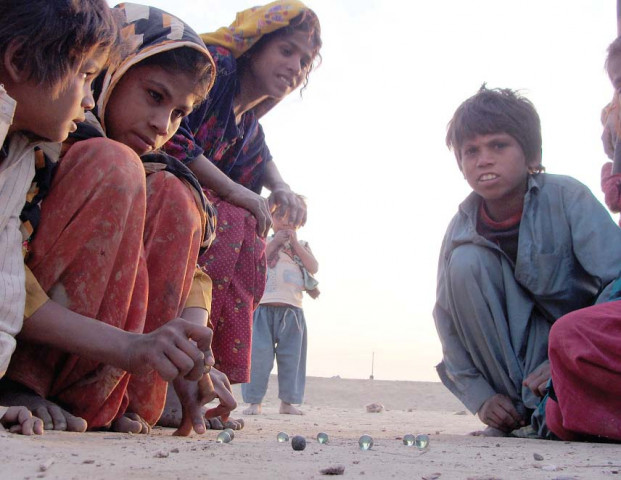Juvenile delinquency: Destined to a life of crime and felony?
State apathetic, abuse and violation of rights witnessed on a large scale.

An increasing trend of juvenile delinquency is being witnessed in Sindh, with offenders often slipping back into a life of crime. Sparc, a children rights NGO, which works with youth involved in criminal activities, reported that jail data points to this worrying trend.
Ghulam Madni Memon, the legal expert at Sparc, said that the lack of rehabilitation centres means that the state does not possess the capacity to transform these children into responsible citizens and take them away from a life of crime and felony.
There are simply no rehabilitation centres that can provide these children with formal education and vocational training so that they develop other skills and concentrate on utilisation of their abilities in a meaningful way.
Currently, only two industrial homes located in Karachi and Hyderabad, known as Youthful Offenders Industrial Homes, play the role of rehabilitation centres. However, they function without any standard operating procedures, codes or laws and act mainly just as detention centres. Even after the release of juvenile offenders, the state does not do anything to help these children and they are left to fend for themselves.
The nature of juvenile delinquency differs between the rural and urban areas of Sindh.
In Karachi, youth are mainly detained for mobile phone theft, robberies and petty crime. However, rural Sindh often witnesses the involvement of youth in more serious crimes, such as murder, sodomy, rape and tribal clashes. This points to a dire need for reform programs so that the impressionable children are not allowed to slip further. Unfortunately, none exist.
There are only five juvenile jails in the entirety of Sindh, including a new centre established in Larkana. The scarcity of juvenile jails in the province means that juvenile offenders are often kept in the same wards as elder prisoners with no protection from them. This means that they are exposed to terrible conditions and come in contact with hardened criminals, often desensitizing them and removing fear of incarceration. “This breeds crime,” said Ghulam Memon.
There exist separate juvenile wards in Sukkur and Khairpur prisons but the living conditions there have significantly deteriorated, according to Sparc. Prison officials often encourage abuse of juveniles as the elder prisoners have open access to the separate wards, which often results in child abuse and violation of their rights.
There is no separate juvenile detention centre in the entire Sukkur region, said Memon. He proceeded to narrate the story of a child who was sexually assaulted in jail after he was arrested and put in the Sukkur jail. In July 2010, ‘S’, a 16-year-old boy, was imprisoned on charges of disturbing the sanctity of his neighbourhood graveyard. The animosity of a jail official towards him resulted in his placement in a cell also housing adult prisoners. He was subsequently sexually assaulted for an entire night. “However, ‘S’ is just one of the victims whose plight has been highlighted,” lamented Memon. “The combination of non-compliance with laws and dearth of juvenile prisons means that young offenders continue to suffer silently in the jails of Sindh,” he said.
Pakistani laws clearly state that youth offenders are to be kept in detention for as short a period as possible. The Juvenile Justice System 2000 states that a trial should be carried out within four months and that conditions for bail be relaxed. Juvenile cases also have to be given preference in courts.
However, some juvenile prisoners have been in jail for over two years, in clear defiance of the law. Pakistan is also a signatory to the 1989 United Nations Convention for the Rights of Child and ratified it in 1990. However, none of its guidelines are even close to being turned into legislation.
Published in The Express Tribune, April 19th, 2011.



















COMMENTS
Comments are moderated and generally will be posted if they are on-topic and not abusive.
For more information, please see our Comments FAQ